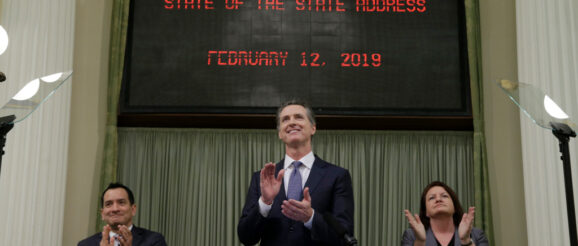California will cease to be the epicenter of the tech industry and innovation

In August, Uber and Lyft came close to shutting down their operations in California. Hours before the looming ride-sharing blackout, a state appeals court granted a last-minute reprieve, accommodating the two companies’ request not to reclassify their drivers—which they consider independent contractors and essential to their business models—as full-time employees as required by California Assembly Bill 5 (AB5).
In October, the appeals court reached a final decision and declared Uber and Lyft must classify their drivers as employees rather than independent contractors.
Then the election struck. As further litigation continued in the background, Californian voters passed Prop 22, a ballot initiative to overturn AB5 for rideshare drivers. Friends of freedom can take a deep breath of relief knowing they have held the lines for now, but much work still has to be done to restore an environment that encourages and welcomes innovation, risk-taking, and genuine economic freedom.
Unless Californian politicians and bureaucrats end their feud against Uber and Lyft altogether, you can forget about flying cars and other radical innovations. The unending battles between ridesharing companies on one side and unions and their political allies on the other contribute to a statist environment which economic historian Robert Higgs describes as “regime uncertainty.”
When “pervasive uncertainty [exists] among investors about the security of their property rights in their capital and its prospective returns,” private investing shrinks and incentives for long-term wealth creation disappear. It only makes sense. After all, what entrepreneur would take the risk to create something new knowing the fruits of his labor will be confiscated or his company outlawed or regulated out of existence?
Here’s a hot take: California will cease to be the epicenter of the tech industry and innovation in the near future. The next Apple, Google, or Uber will emerge elsewhere than Silicon Valley. The AB5 legal saga with all its twists, turns, and reversals has already left behind a trail of damage.
Though well-intended — the goal was to provide employment benefits to gig workers — AB5’s unintended consequences devastated those it purportedly tried to help. As of this writing, while Californian ride-sharing drivers can still pursue an honest living, other freelancers and independent contractors have already lost long-time contracts and business, suffered economic hardship, and now face an uncertain future.
The fallout from AB5 is just the tip of the iceberg of California’s decades of accumulated statist trends. Given the state’s notoriously high taxes, heavy regulations, and endless sea of bureaucratic red tape, one tech executive went so far as to declare, “It’s easier to do business in Cuba than San Francisco.” The exodus of companies and people from California shows no signs of stopping. Prominent names including podcaster Joe Rogan as well as investor Peter Thiel have left California for Texas in hopes of finding economic freedom as well as freedom of thought in ideas.
While pundits can debate endlessly the California versus Texas political models, actions speak louder than words. No matter how many useful idiots romanticize false egalitarian utopias, Venezuelans and Cubans risk their lives to escape to the United States, not the other way around. While Americans are fortunate not to have experienced oppression and poverty remotely comparable, the same trend exists. People flee California for Texas, not the other way around.
That’s what I did. Having lived and worked in California from 2013 to 2015, and despite having a steady job and a supportive network of friends and colleagues, I realized the state was heading in a direction I couldn’t support. There was no future for me there. So I made the decision to move and start new beginnings in the great state of Texas. As of today, I can unequivocally assert it was one of the best life decisions I’ve made.
Yet, I am saddened to see what has become of the Golden State. At some point, if not already, the net loss of people and brain drain will be fully felt. Without people, there will be no future innovations and new solutions to existing problems. In a world of scarcity, so the economist Julian Simon recognized, people themselves and their imaginations are the ultimate resource that can overcome any challenge.
But the human imagination can only thrive in a free society. More importantly, a free society cannot exist without the rule of law. The rule of law needs to be clear and consistent, not arbitrary or constantly shifting depending on the latest political fads. Innovation, investment, and prosperity all depend on this foundation.
Moral principles, sound economics, and individual freedom are inextricable. They stand or fall together.
Aaron Tao is a technology professional and Young Voices Contributor working in Austin, Texas. Follow him on Twitter @aarontao2.
